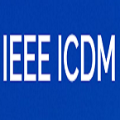Cognitive diagnosis aims to gauge students' mastery levels based on their response logs. Serving as a pivotal module in web-based online intelligent education systems (WOIESs), it plays an upstream and fundamental role in downstream tasks like learning item recommendation and computerized adaptive testing. WOIESs are open learning environment where numerous new students constantly register and complete exercises. In WOIESs, efficient cognitive diagnosis is crucial to fast feedback and accelerating student learning. However, the existing cognitive diagnosis methods always employ intrinsically transductive student-specific embeddings, which become slow and costly due to retraining when dealing with new students who are unseen during training. To this end, this paper proposes an inductive cognitive diagnosis model (ICDM) for fast new students' mastery levels inference in WOIESs. Specifically, in ICDM, we propose a novel student-centered graph (SCG). Rather than inferring mastery levels through updating student-specific embedding, we derive the inductive mastery levels as the aggregated outcomes of students' neighbors in SCG. Namely, SCG enables to shift the task from finding the most suitable student-specific embedding that fits the response logs to finding the most suitable representations for different node types in SCG, and the latter is more efficient since it no longer requires retraining. To obtain this representation, ICDM consists of a construction-aggregation-generation-transformation process to learn the final representation of students, exercises and concepts. Extensive experiments across real-world datasets show that, compared with the existing cognitive diagnosis methods that are always transductive, ICDM is much more faster while maintains the competitive inference performance for new students.
翻译:暂无翻译




